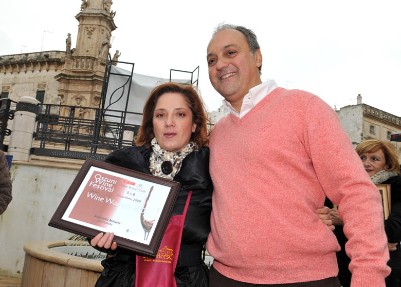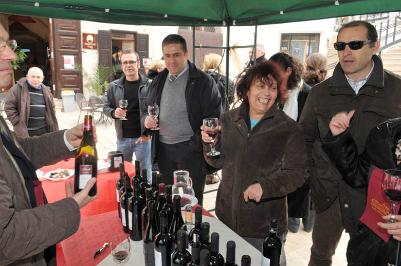Wines of Basilicata (Matera area)
The Romans called the region Lucania, and this name is also still used today, apart from Basilicata. The current name is derived from the Byzantine word “basilikos“, which was a name used for the provincial lords who ruled here in the 9th and 10th century. The hilly highland area has mainly sedimented soils (clay, sandstone and limestone), and there are many rivers flowing through the area. Basilicata is surrounded and enclosed by the three regions Apulia, Calabria and Campania. There are only two relatively short stretches of coastline on the Tyrrhenian and the Ionian seas. The vineyards are divided into many thousands of tiny parcels of land, many less than a hectare in extent. Most of the vineyards are located in river valleys in the East, close to Matera, and on the coastal plain on the Ionian sea around Metaponto. The Greeks planted the predecessor of the currently dominant red grape Aglianico here in the 6th century BC, other important red varieties are Aleatico, Bombino Nero, Ciliegiolo, Malvasia Nera and Sangiovese. The most important white varieties are Asprinio, Bombino Bianco, Fiano, Moscato Bianco and Trebbiano.

Boutique Wines of Puglia
Puglia wines are excellent, varied, and prolific. For as long as wine has been made, Puglia has produced it, and much is of exceptional quality. Unknown to most people, the amount of wine produced in Puglia is more than any other region of Italy, and is almost equal to the total amount produced in the whole of Australia. Recently, Puglian wine has been marketed as a distinct region, and is gradually becoming more widely recognised, appreciated and sought after.
Puglia features a great variety of grapes; furthermore soil and climate are all different from the northern districts of Bari & Foggia to the south, better known as Salento (Taranto, Brindisi, Lecce). The wines are very focused with fine acidity. The two main red grape varieties in southern Puglia are Primitivo (Zinfandel) and Negroamaro (‘bitter black’); they are both fabulous and have now gained a thoroughly deserved international reputation.
Most people define boutique wine as “small production”, “artisanal” or even “cult”. But what does it really mean for a wine to be boutique? The boutique winemaker are passionate about his/her craft, the vineyard manager knows every vine, exactly when to harvest the grapes, how delicately they should be crushed… the whole wine operation just has a sense of purpose that transcends the “business” of producing wine. Of course, this makes discovering boutique wines a bit more difficult. We have selected a limited number of boutique wineries in the Salento area, among our favourites: Castel di Salve, L'Astore, Duca Carlo Guarini, Santi Dimitri, Cantine Vaglio Massa, Schola Sarmenti, Tenuta Patruno Perniola, Polvanera and few others....
